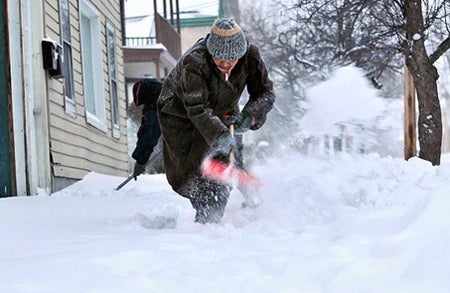Owners of stores, restaurants and rental properties are probably focused more on air conditioning right now, but come this winter they may need to be more conscientious about snow and ice removal than they have been in the past. A recent ruling by the Massachusetts Supreme Judicial Court gives property owners more responsibility for keeping sidewalks clear of snow and ice. It reverses legal precedents set in the 1880s that drew a distinction between natural accumulation of ice and snow and slippery conditions caused artificially.
What led to the new ruling?
Emmanuel Papadopoulos of Peabody filed a lawsuit against a Danvers Staples after slipping in its parking lot in 2002. The SJC decision gives Papadopoulos standing to continue with the suit.
How did the old standard work?
Under the old precedent, Massachusetts had an unusual exemption from liability for property owners if visitors slipped on naturally accumulating snow and ice. According to some attorneys, that left juries with the difficult task of determining whether icy buildup came directly from precipitation or from an errant snowplow or shovel. It also may have given property owners a perverse incentive to leave their walkways unshoveled.
What does the new standard say?
Under the new ruling, ice and snow are treated the same as other hazards: owners have a duty to “act as a reasonable person,” considering the likelihood of injury, how seriously someone could be hurt and the burden of avoiding risk in any circumstance. What’s reasonable may depend partly on the type of property owner involved—a nursing home could have a different level of responsibility from an individual home owner, for example. Juries will have to determine exactly what responsibility an owner has in specific circumstances.
What will the immediate effects be?
The new rules take effect immediately, and they also apply to pending lawsuits. As suits begin to be resolved, the decisions will create new sets of precedents on owners’ exact responsibilities.

